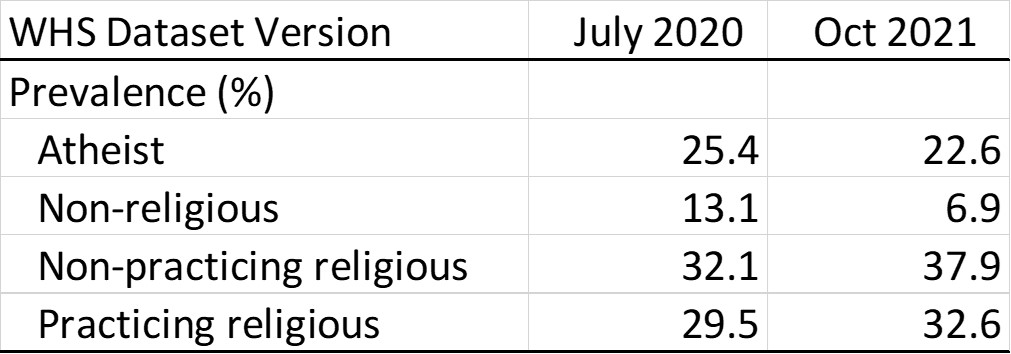I recently came across the 2017 Pew Research Center survey of more than 4,700 U.S. adults which found that of those who say they believe in God, 30% say they believe in some other higher power or spiritual force in the universe rather than the God of the Bible. Among those who say they do not believe in God (aka atheists), 47% say they believe in some other higher power or spiritual force. What do people mean when they say this? And do atheists and theists mean the same or different things?
Before discussing this, I first present some similar data for the United Kingdom, Australia, and Canada (the mother country and two other English speaking ex-colonies).
A 2020 YouGov poll in Britain found that 27% say they believe in “a god”, 16% say they believe in the existence of a higher spiritual power, but not a god, 41% do not believe in a god or a higher power and 18% don’t know. Among British Christians, just over half say they believe in God, 16% believe in a higher power, 10% don’t believe in God or higher power, and 16% don’t know.
The 2019 Australian Community Survey found that 29% of Australians say they believe in a personal God and 32% say they believe in some sort of spirit or life force. Around two in 10 (21%) do not believe and 18% remain unsure.
A very recent Canadian survey carried out in November 2022 found that just over a third of Canadians believe in God or gods (33.6%), with a further 32.1% saying that they believe in a higher power or spiritual force, but don’t necessarily believe in a god or gods. More than one-in-five (22.1%) don’t believe in any spiritual power.
Continue reading
